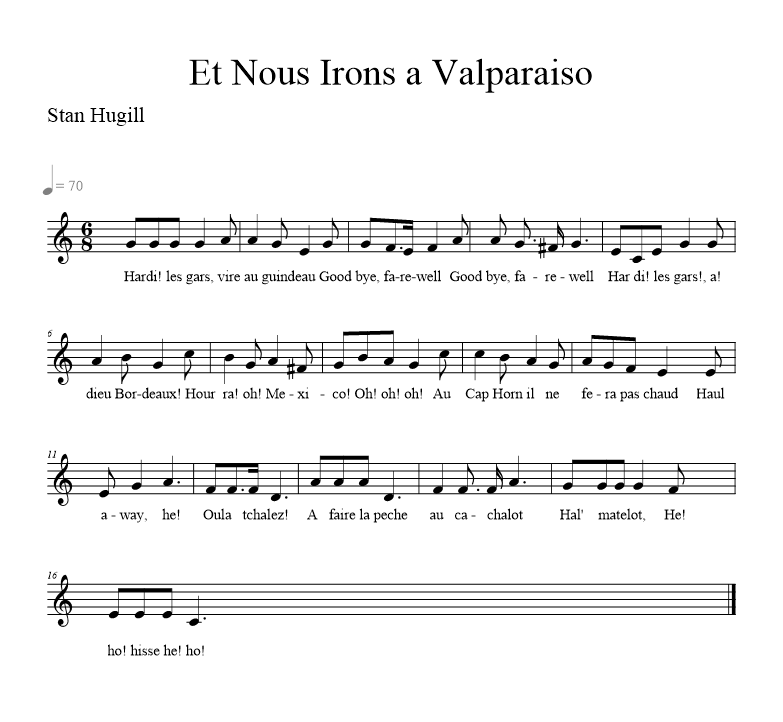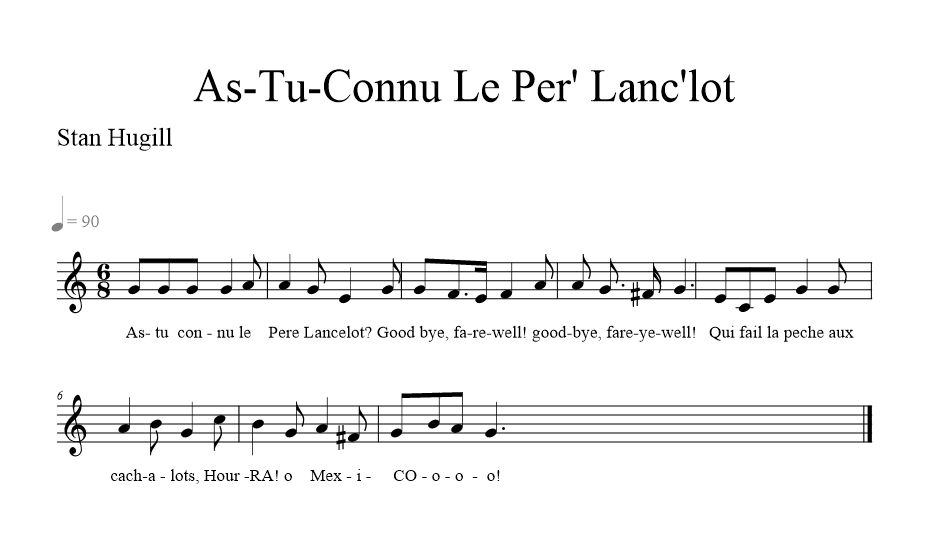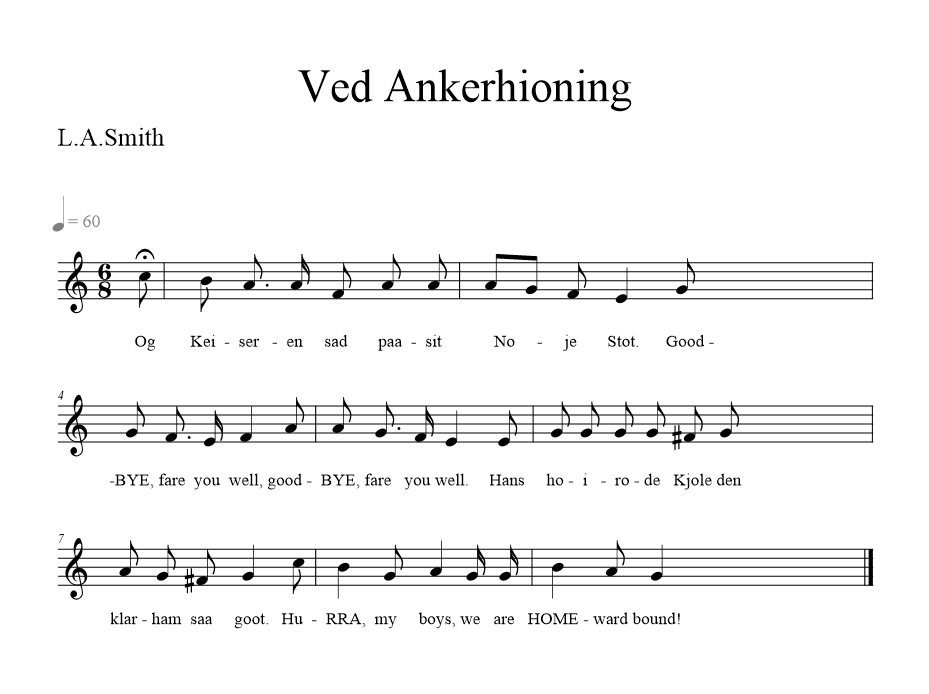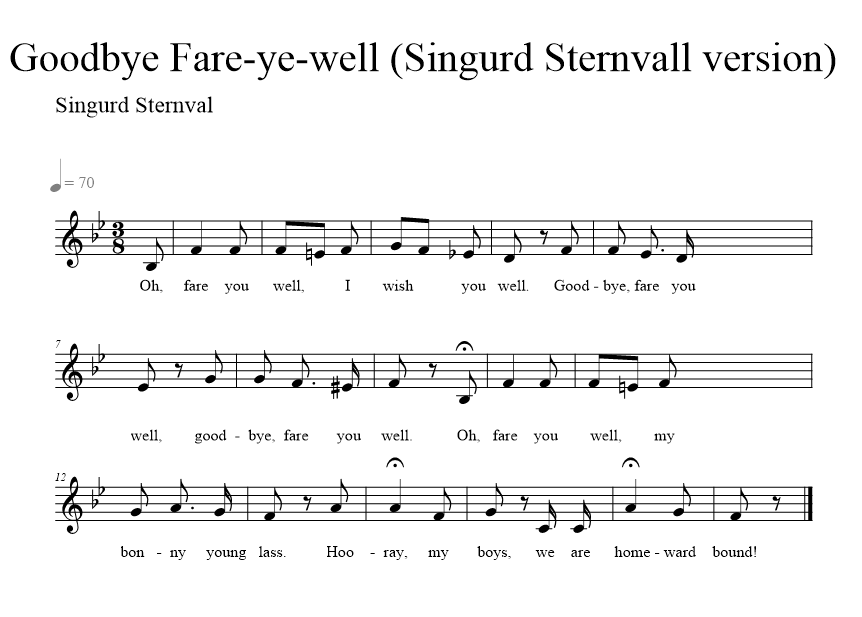Interesting Facts about the Horraw For The Blackball Line
Horraw For The Blackball Line was sung at the capstan or windlass All those shanties with words “Hurrah”, “Horray”, or “Horraw” in the refrain or chorus were known by sailors as “horraw choruses” and very often was said that “our wild horraw chorus soon raised the mud hook (or hoisted the tops’l)”. Here is one of the best “horraw choruses” shanty.
The song will be reconstructed by myself as the capstan shanty.
The source of this sea shanty
The music: “Shanties from the Seven Seas” by Stan Hugill (1st ed p 131).
The lyrics: “Shanties from the Seven Seas” by Stan Hugill (1st ed p 131).
The Record of the Horraw For The Blackball Line
You also can find this record on my YouTube channel here or directly listen below. Additionally, if you want to share your opinion about the record or share your opinion you can do it in my Facebook forum here, or leave a comment at the bottom of this blog article.
The musical notation
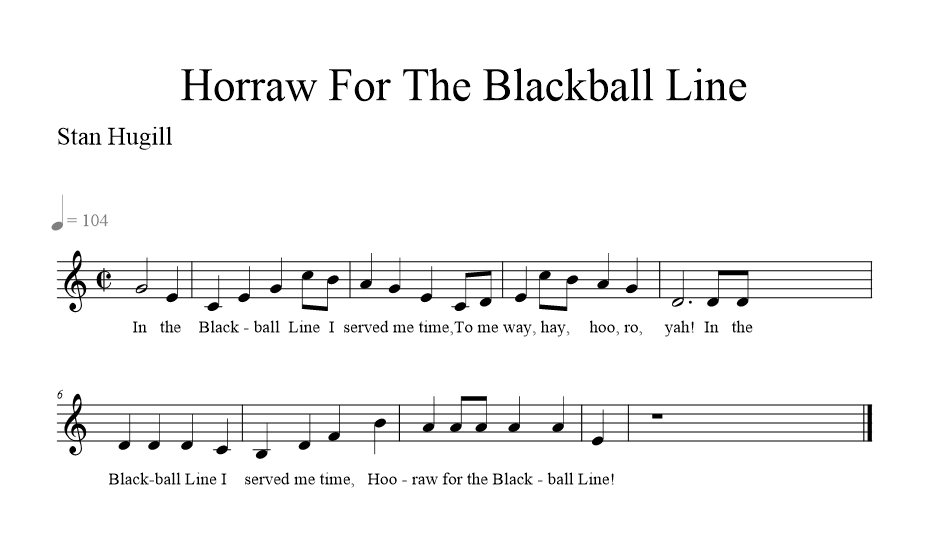
The full lyrics
Horraw For The Blackball Line
In the Blackball Line I served me time,
– To me way, hay, hoo, ro, yah
In the Blackball Line I served me time,
– Hooraw for the Blackball Line!
* 2 *
Blackball ships are good an’ true
They are the ships for me an’ you
* 3 *
That’s the Line where ye can shine
That’s the Line where I wasted me prime.
* 4 *
If yer wish to find a real goldmine,
Just take a trip on a Blackball ship
* 5 *
Just take a trip to Liverpool,
To Liverpool that Yankee school
* 6 *
Yankee sailors ye’ll see there,
With red-topped boots an’ short-cut hair.
* 7 *
There’s Liverpool Pat with his tarpaulin hat,
An’ Paddy Magee the Packet Rat
* 8 *
There was once a Blackball ship,
That fourteen knots an hour could slip.
* 9 *
They’ll carry ye along through the ice an’ snow,
They’ll thake ye where the winds don’t blow.
* 10 *
I’ve seen the Line both rise an’ shine,
An’ crossed the line in ’em many a time.
* 11 *
Oh, drink a health to the Blackball Line,
Their ships are stout an’ their men are fine.

